At Base Camp we are passionate about the benefits of being active in, and connected to, nature – this doesn’t mean surviving on meal worms and wild camping – just being present in natural surroundings is proven to have huge benefits to mental health and emotional regulation.
Base Camp is excited to be offering three adventures this October half term…
10.00 am – 3.00 pm
AGES: 5-11
The Day…
We celebrate the woodland animals at Autumn as they make the most of nature’s bounty before it disappears for Winter. Hedgehogs, squirrels, spiders and ladybirds are all very busy feasting, resting and making and we will adventure alongside them – finding signs, making webs, crafting, playing games and building dens in celebration of these fabulous creatures.
Includes
Warm drinks & homemade snacks will be included.
Base Camp Holiday Adventures are about being active and enjoying time in nature whatever the weather! Having the right kit will make all the difference – so it’s essential participants are prepared for the weather on the day.
Long trousers or leggings (even when hot) are required as we will be walking through vegetation and long grass.
Rainy and Cool/Cold – please come with waterproof coat, boots/wellies and warm layers (the woodland is quite cool).
Base Camp has a limited number of waterproof clothing/footwear that they can provide. Please get in touch if your child or young person will need any kit.
10.00 am – 3.00 pm
AGES: 7-13
The Day…
We start the day by walking through the sheep flock to Thirsk Bowmen’s archery range, which is based at Baldersby Park. These archers are passionate about shooting arrows and offer expert and fun instruction for everyone, with additional challenge for those with a little more experience. This is the real deal – no sticks with suckers on, here!
After lunch, we light the fire and open the outdoor kitchen for some alfresco cooking! Using seasonal ingredients and flavours, we will cook up some treats and make some woodland tea for the perfect afternoon snack before finishing with some games.
Includes
Warm drinks & homemade snacks will be included.
Base Camp Holiday Adventures are about being active and enjoying time in nature whatever the weather! Having the right kit will make all the difference – so it’s essential participants are prepared for the weather on the day.
Long trousers or leggings (even when hot) are required as we will be walking through vegetation and long grass.
Rainy and Cool/Cold – please come with waterproof coat, boots/wellies and warm layers (the woodland is quite cool).
Base Camp has a limited number of waterproof clothing/footwear that they can provide. Please get in touch if your child or young person will need any kit.
10.00 am – 3.00 pm
AGES: 5-11
The Day…
Our Super Scientist, Becca returns to Base Camp for some especially spooky experiments! Think fizzy potions, oozing pumpkins and fang-tastic toothpastes – chemistry has never been so fun, gruesome or possibly messy!
We continue to celebrate Hallowe’en in the afternoon as Myra, our Forest School Leader, will be conjuring up some fabulous creepy crafts that will test our bushcraft skills and spark our creativity.
Includes
Warm drinks & homemade snacks will be included.
Base Camp Holiday Adventures are about being active and enjoying time in nature whatever the weather! Having the right kit will make all the difference – so it’s essential participants are prepared for the weather on the day.
Long trousers or leggings (even when hot) are required as we will be walking through vegetation and long grass.
Rainy and Cool/Cold – please come with waterproof coat, boots/wellies and warm layers (the woodland is quite cool).
Base Camp has a limited number of waterproof clothing/footwear that they can provide. Please get in touch if your child or young person will need any kit.
Both Catherine and I are Level 3 trained in Teaching and Learning Support and Child Development. Between us we have 25 years of experience working in schools and childcare settings. Catherine has worked a lot with Early Years, including the Montessori method and is a marvel at many things, but particularly crafts. I have worked predominantly in primary schools, with a focus on supporting children with SEND, and in Adult Learning where I supported learners with phonics all the way up to GCSE Maths. I am also a fully trained Designated Safeguarding Officer.
Myra is our qualified Forest School Practitioner for Base Camp’s Holiday Adventures. When not at Base Camp, Myra is a Higher-Level Teaching Assistant at a local Special Needs school. She’s worked with special needs children and young people for over a decade and aside from her Forest School qualification she brings a wealth of SEND experience and expertise and is passionate about everyone being able to access the benefits of outdoor learning and adventure. Her favourite Forest School activity is making musical instruments, but she can conjure up some amazing games where she has as much fun as the children do!
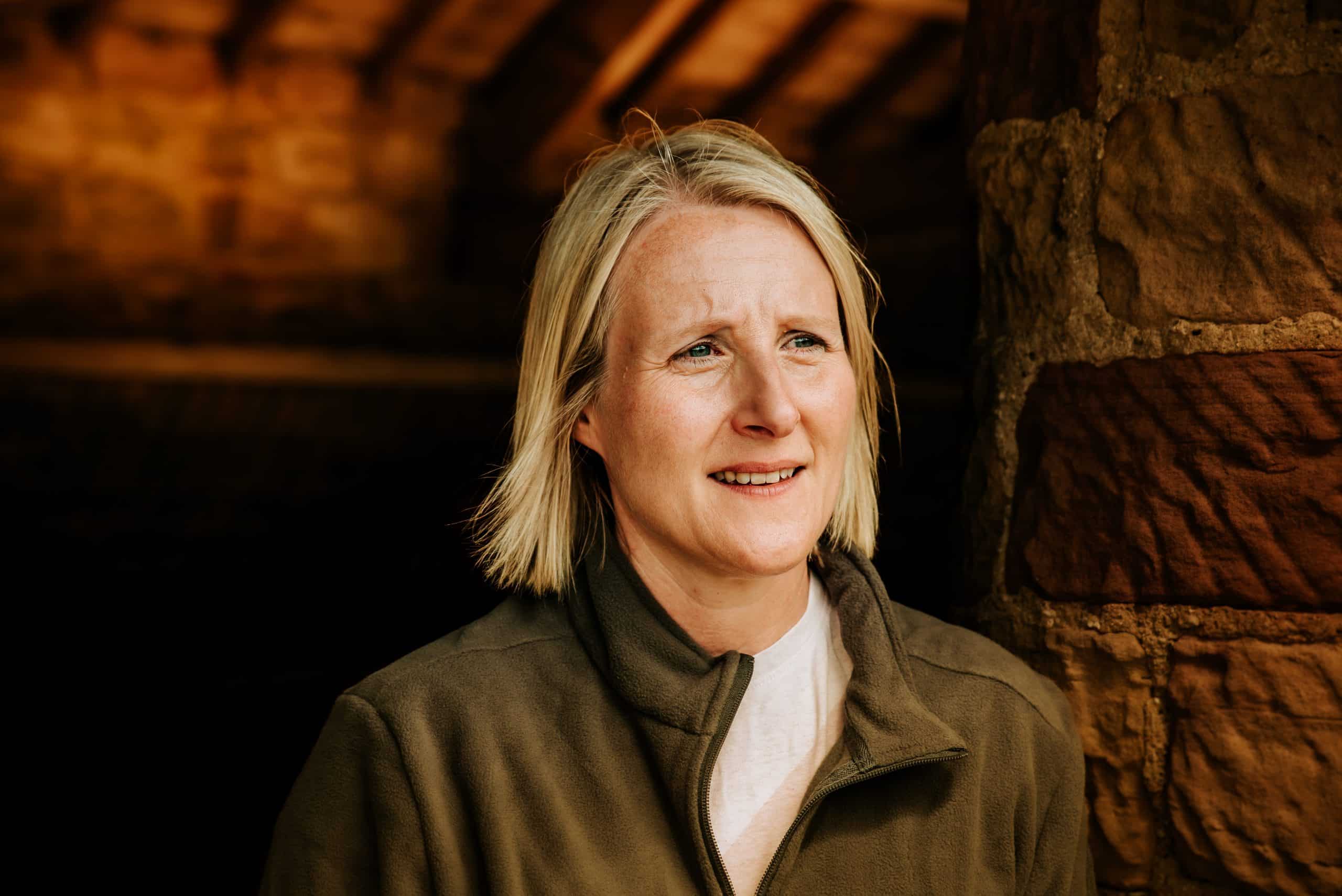
Hannah Secouet
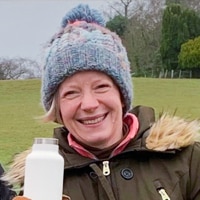
Catherine Webster
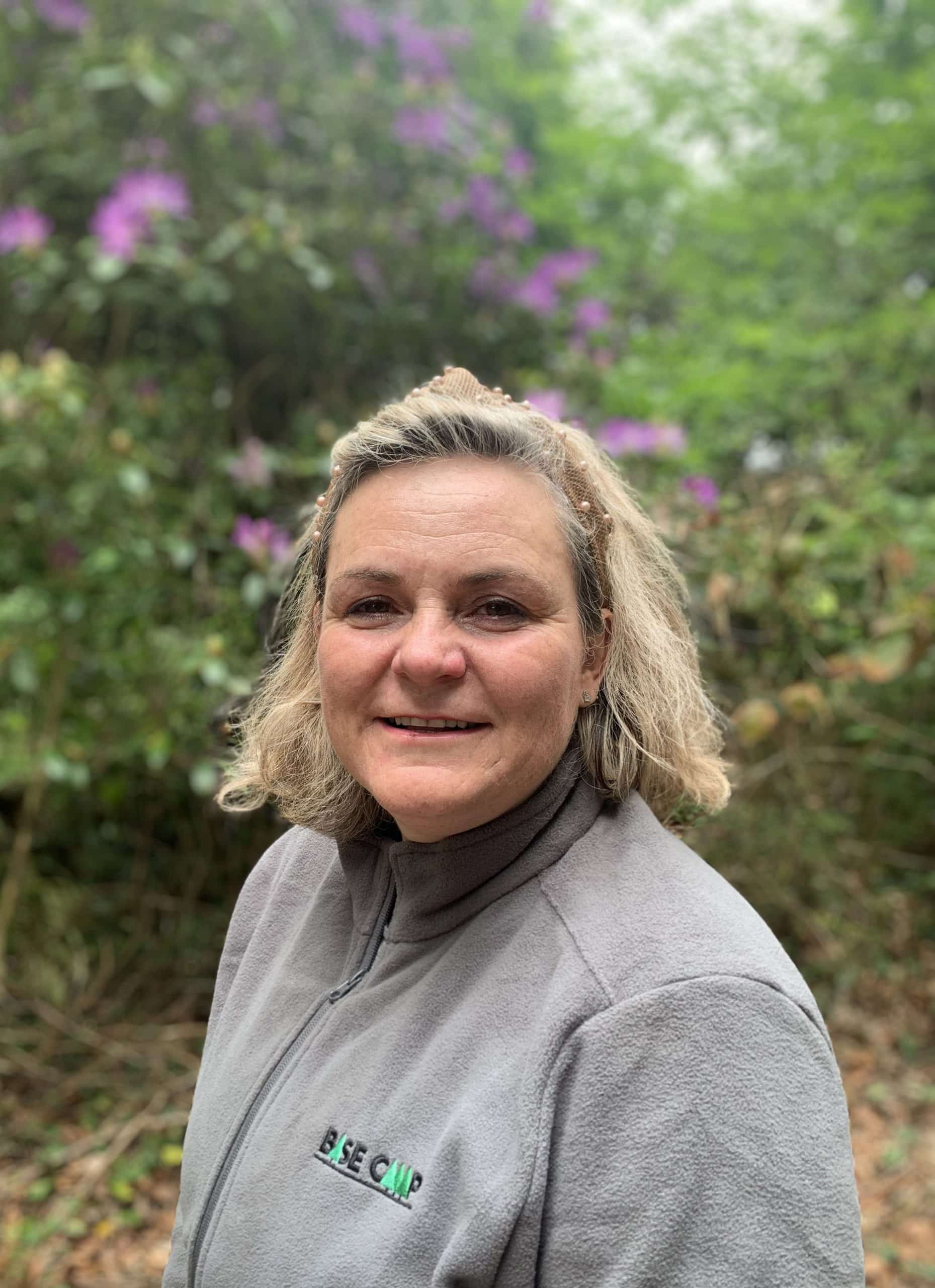
MYRA WOODS


Base Camp, Baldersby park,
Park Rd, Thirsk YO7 3BZ
09:00 AM – 18.00 PM
Monday – Friday
Phone: +44 (0)7979 526 883
Email: hannah@basecamplearning.co.uk

This what3words address refers to a 3 metre square location. Tap the link or enter the 3 words into the free what3words app to find it.


Once used for a shelter and food stop for the park’s deer is now your base for the day. Picnic tables line the shelter for use during lunch, briefings or inputs or any study that would benefit a table. Housed here is also the up-cycled handwashing unit and teacher well-being station, where you can grab a hot or cold drink and a little moment of calm.
our compostable loos are a firm favourite with children, providing plenty of discussion about sustainability and water and energy use. Each toilet is housed in an individual cubicle with easy to use locks and sanitary facilities.
For peace of mind, there’s a smaller piece of land, adjacent to the Deer Shed which is fully enclosed from the rest of the park. Full line of sight is found from the Deer Shed itself, so you can feel confident that your class or group are safe and secure, during transitions, breaks or lunchtimes.
Using solar panelled water pumps we provide hand washing facilities. All the waste water is then returned to the land.
We believe that every child should be able to access the outdoors. We work closely with schools to ensure we can help you meet the needs of SEND children and are happy to tailor this provision to individual needs, as much as we possibly can.
As an example of what we can offer:
Please contact us to discuss your SEND needs hannahsecouet@me.com
Respect nature and wildlife at all times
Adapt a ‘leave it as you found it’ approach
Close all gates, every time
If it’s living, don’t pick it
Be quiet and considerate when walking through grazing livestock
As the saying goes, “There’s no such thing as bad weather, just bad clothing!”
Wearing appropriate clothing can have a big impact on engagement and enjoyment. Asking parents to clothe their children in suitable stuff for outdoor conditions is really important. Long trousers and sleeves; boots, wellies or trainers that are ok to get muddy; and a most importantly a waterproof coat! In summer, hats and sunscreen.
We believe that you and your class can enjoy learning at Base Camp whatever the weather! However, in the event of poor weather we are happy to alter and adapt your timetable to ensure that you get the most out of the day.
In cases of extreme weather conditions, following an early morning site inspection, we would discuss with the lead staff member whether it would be safe to continue with the visit. In the event of the visit not being able to go ahead we would look to reschedule at your earliest convenience, at no extra cost.
Whilst visiting Base Camp, behaviour management will always be the responsibility of the school staff. The expectation is that visiting staff and pupils will adhere to Base Camp rules in addition to those ordinarily expected when in school grounds.
Should Base Camp staff witness behaviour that falls below the expected standard, then Base Camp staff will notify visiting school staff of the incident to allow the matter to be dealt with in accordance with their own behaviour policy.
Base Camp staff will only directly intervene if the behaviour is risking imminent danger or harm to themselves, other individuals, property, or the environment.
Download
Download
Download
Download
Explore the map below by clicking on the links.
Archery
Ancient Oaks
WOODLAND WALKWAY
Obelisk
Log Circle
Den Building
Log Circle
ECO-Loos
Enclosure
Deer Shed
Woodland Stage
Standing Stone
Lake
MAIN ENTRANCE
LOG CIRCLE
Solar Panels
The Park
(neo-lithic age)
Stone axe found in adjacent farmland.
(Bronze Age)
2 axes and a spear found on site or near to park
Deliberately placed earthfast boulder found near the boundary – thought to be a standing stone (possibly part of a henge).
Records show a settlement, Newby on Swale, thought to lie within the park boundary next to where the lake is currently. The mature oaks are living evidence of a line of oaks thought to line a back lane into the settlement.
The land associated with Baldersby Park is bought by the Grene family from John de Newby.
Newby on Swale records that 11 families are eligible to pay tax as part of the Fountains Abbey estate. The medieval ridge and furrow ploughing system indicates that people farmed the land and were settled at the site.
Deeds from the Fountains Abbey estate show that tenements exist.
Scots invade – local skirmishes with English landowners.
Scots set Newby on Swale on fire – the village never quite recovers.
The Dawnays sell Newby Park to William Robinson (Lord Mayor of York) and it passed through his family until Sir William Robinson (1655 – 1736) sets about building a new house and pleasure grounds to replace the Jacobean mansion house that his predecessors had built.
Newby Park is built. Colen Campbell was architect and created the earliest known English Neo-Palladian villa set in 200 acres of landscaped parkland. It took 22 years from design to completion (1705-1729).
The Obelisk is added to the design of the parkland.
Adam Mickle (Capability Brown’s protégé) designs modifications to the park – reducing the number of trees to create a softer more fashionable look with a bridge over the lake. Uncertain how many of his designs were implemented.
Additions to the park take place such as the ha-ha and deer shed, Rainton Lodge and enhanced entrances, and the belt.
Robinsons sell to George Hudson (The Railway King and Lord Mayor of York) – the park is now one third of its original size having returned some of the land back to agriculture.
Sold to 7th Viscount Downe – changes the name of Newby Park to Baldersby Park to prevent confusion with Newby Hall nearby.
Sold to John Brennard, a cotton magnate from Burnley. The house suffers a major fire shortly after its purchase.
The Brennard’s give permission for the house to be used as a military convalescence hospital (John’s wife, Katharine and his daughter, Nadine, both work at the hospital).
The cotton market crashes and Baldersby Park House is sold to Skellfield School for Girls.
The parkland is let to Mr JC Webster.
The house is requisitioned by the RAF and RCAF for the duration of WW2.
Skellfield School returns to the house and 300 trees are felled in the park to pay for re-equipping the school.
The Webster family acquire the freehold of the parkland.
Skellfield School sells the house to The Country Club and Old People’s Home.
Queen Mary’s School buy the house.
Conservation work takes place on the obelisk and lake.
First Deer Shed Festival is held on the parkland.
100 years of the Webster family farming and using Baldersby Park.
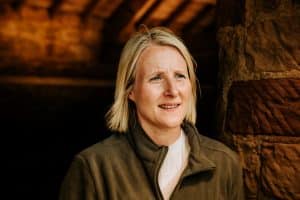
FOUNDER
Starting as a curious parent who hadn’t stepped into a school since she left, I soon became interested in the workings of the classroom, particularly for those children who sometimes struggle with a mainstream setting.
I joined the governing body of my children’s primary school and started volunteering in the classroom to get a greater understanding of practises, which ultimately resulted in my gaining a Level 3 Qualification in Specialist Support for Teaching and Learning in Schools and becoming the Chair of Governors.
From this unique perspective I could see first hand what a creative and inspiring curriculum could mean for a child’s love of learning, whilst also understanding the pressures on school leaders to deliver so much more than ‘just’ the curriculum.
Coming from a farming family I grew up with an obvious connection with nature and an understanding of our reliance on it. Baldersby Park, where Base Camp lives, has been farmed by our family for nearly a century and after six years working in a variety of local educational settings and in a post-pandemic world, we felt it was time that this slice of nature should be shared.
Nurture and wellbeing has always been a passion of mine in the classroom, so it’s my hope that Base Camp will allow both teachers and children to make deep and lasting connections (both personally and environmentally) whilst engaged in affordable authentic and experiential learning in the open air.
Teachers speak of outdoor learning improving relationships with their class; reinvigorating their love of teaching; unlocking a love of learning in those ‘hard-to-reach’ children; and the endless ‘squirrel moments’ – a phrase used by Outdoor Ed guru, Sue Waite, to describe when something unanticipated happens when out in nature that captures the children’s imagination and becomes a beautiful teaching and learning moment – these are those pure, uplifting moments of joy, that remind you why you do the job you do!
The research is plentiful as to the benefits, to both staff and children, of teaching outdoors and in nature.
– Improved physical, social and emotional health
– Improved cognitive skills and critical thinking
– Improved resistance to negative stress and depression
But don’t just take our word for it, here’s what the experts say…
72% of schools said learning outside improved staff health and wellbeing
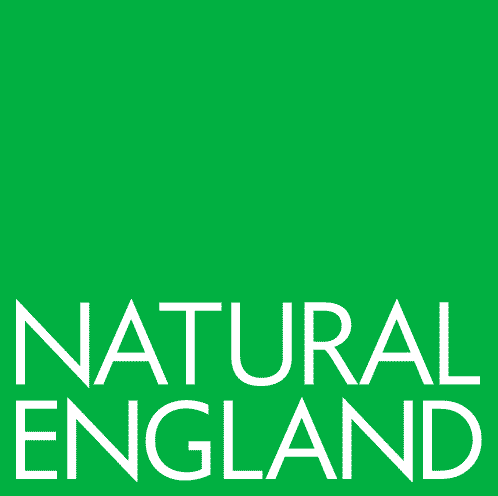
Natural Connections Demonstrations Project 2016
Children who participated in a structured outdoor learning programme increased their attainment in English, reading, writing and maths significantly more than their peers in a conventional classroom.

Wilderness Schooling Trial, 2017
Attainment was sustained and learning was richer and more participatory due to a multi-sensory environment.

Wilderness Schooling Trial, 2017
“When planned and implemented well, learning outside the classroom contributed significantly to raising standards and improving pupilsʼ personal, social and emotional development.”

Learning Outside The Classroom
“Learning outside the classroom was most successful when it was an integral element of long-term curriculum planning and closely linked to classroom activities.”

Learning Outside The Classroom
92% of schools said learning outside improved pupil mental health

Natural Connections Demonstrations Project 2016
Baldersby Park is home to Thirsk Bowmen and Base Camp is lucky enough to work closely with this organisation to provide visiting schools the opportunity to give archery a go. The archery coaches are happy to facilitate sessions with a curriculum focus, such as Maths puzzles or Grammar and Spelling quizzes on the targets!
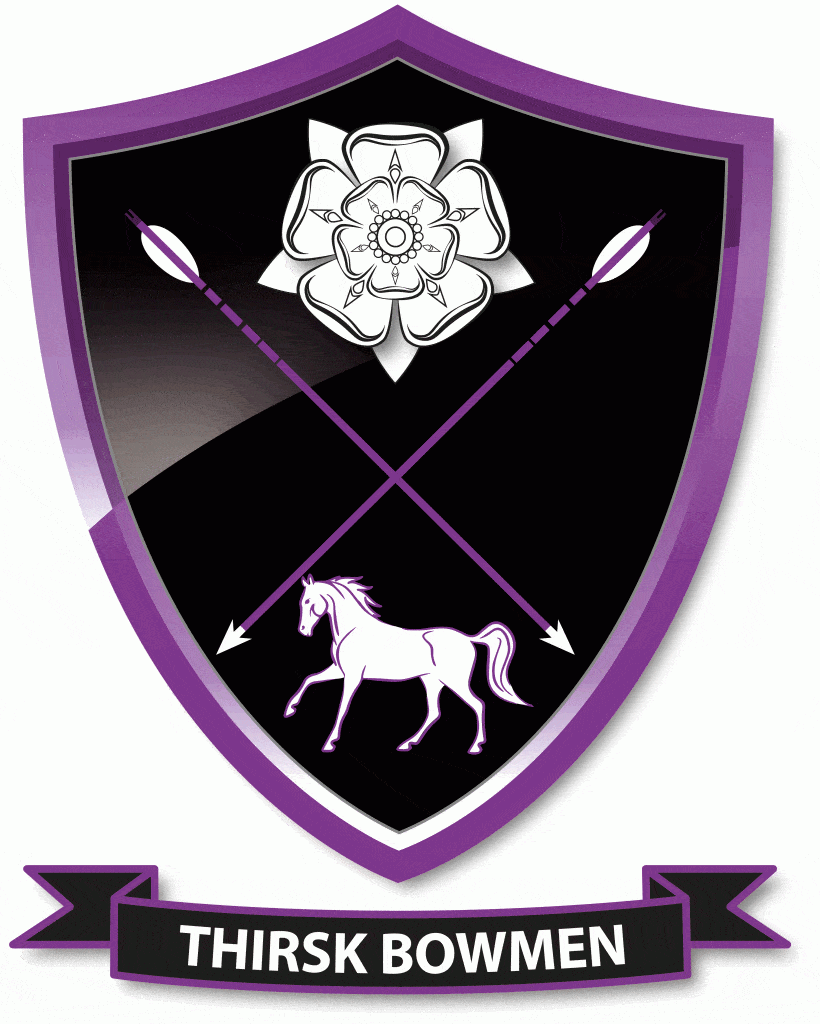
Visit our dedicated den building area and let your class create. Set a brief (for shelter, for a fairy, for a character in your current class text, for your pet) or let them set their own. Team building, resilience, creativity and resourcefulness all come to the fore, whilst discussions about what the natural materials are, and which is best for what job can be talked about along the way.
Working closely with our sister company, Deer Shed Festival, we have access to all kinds of artists, theatre groups and performers. Whether it’s a session on land art, a large whole class sculpture project or an immersive theatre experience, we can organise a range of talented specialists to suit your needs.
Qualified bushcraft and forest school practitioners can come on site to demonstrate and teach your class some survival techniques and practical skills for the forest.
DfE’s Sustainability and Climate Change Strategy (April 2022) cited the importance and urgency of educating our children about their environment in order “that they can be agents-of-change, through hands-on activity” and “play a significant part in nature’s recovery”.
Action Area 1 of the report is Climate Education and highlights 3 key areas for schools to action.
Base Camp aims to foster links with schools across the region and be a key ingredient in making our children aware of, passionate about and resilient to, their changing world. As Greta Thunberg succinctly put, “There is no Planet B”.
Base Camp is committed to ensuring that we have a positive impact on our environment. This will be done by reusing and repurposing existing products wherever possible. Resources that cannot be obtained that way will be purchased from a sustainable source (e.g. wood from FSC stamped suppliers) or from recycled materials. For any product or resource that must be bought new, consideration over the air miles travelled; the recyclability of the material it is made from; and its durability, will take place prior to purchasing.
Base Camp is committed to encouraging users of their facilities to think about how their own classrooms are resourced, in a bid to develop greater awareness about the greener ways in which to stock classrooms.
Base Camp will operate a NO single-use plastic bottle policy across the site, instead asking schools to bring refillable water bottles and providing drinking water.
https://www.gov.uk/government/publications/sustainability-and-climate-change-strategy
Drop Hannah an email or give her a call with an outline of how you want to use Base Camp. Hannah will get back in touch to discuss learning outcomes, develop ideas and chat about pricing structures.
Once you make your initial booking you will be invited for a pre-visit tour of Baldersby Park where you, and any staff involved, will be able to draw inspiration and start planning.
After the planning stage is wrapped up, we would generate a timetable and resource list, so Base Camp staff can set everything up before you arrive, ensuring your outdoor classroom is ready-to-go the moment you step off your transport!
Qualified support staff will be with you through the entire visit, supporting you in any way we can so that you can deliver your lessons. We will also be on-hand to offer information on the natural environment, point out interesting things to see along the way and provide additional nature and wellbeing activities to supplement curriculum learning.
Base Camp, Baldersby park,
Park Rd, Thirsk YO7 3PH
09:00 AM – 18.00 PM
Monday – Friday
Phone: +44 (0)7979 526 883
Email: hannahsecouet@me.com
Got a group that’s finished? Got an existing nuture group coming? Want to timetable in some wellbeing in the woods for the whole class? – we’ve got a bunch of stuff at the ready…
A classic, but for good reason! Set a brief (for shelter, for a fairy, for a character in your current class text, for your pet) or let them set their own and develop it from there. Team building, resilience, creativity and resourcefulness all come to the fore, whilst discussions about what the natural materials are, and which is best for what job can be talked about along the way.
A quick an easy one for thirsty learners who finish first. Throw down one of our wooden frames and sketch it, sort it, describe it, name it, count it, compare it…endless ways in which to squeeze some more curriculum learning whilst looking and observing nature close up.
Otherwise known as grounding, this is where we take off our shoes and socks and physically connect with the earth, as our ancestors did all the time, without the modern-day insulation of shoes, cars and carpet. Scientifically proven to help heal the human body, boost immunity and sleep, this is an interesting exercise to practise with children. Safe, prickle-free locations are chosen, and cleaning materials supplied to dust off feet.
This Japanese practice is a process of relaxation; known in Japan as shinrin yoku. The simple method of being ‘in the moment’ – calm and quiet amongst the trees, observing nature around you whilst breathing deeply can help us to de-stress and boost health and wellbeing. This practise can be done where individuals can choose a sitting spot within an area, or as a group activity lying on tarpaulins observing the tree canopy and all the activity within it.
Baldersby Park has over 300 hundred trees (and still counting!). Let your children use their investigative skills to try and figure out whether it’s a sycamore or a maple or an ash or a rowan – but most importantly, tell us why?
The park offers courses for all age groups to practise their map reading skills, get active and discover the whole park. The added challenge of walking through grazing sheep is something the children enjoy.
Another firm favourite with children. Scattered around the woodland area, closest to Base Camp, are our hero trees. Fine and mature specimens all waiting to be hugged, talked to and connected with. What do they feel like? Smell like? If they were humans, what name would you give them? How old do you think they are? Can you introduce them to your friend?
Squares of super-sticky, wide tape make the perfect mini-canvas for any masterpiece using the many interesting and varied items found from the woodland floor.
Series of games using blindfolds so children use their other senses and as well as relying on their sighted friends for clear instructions. Make a maze, minefield or an obstacle course.
Get the children to choose an item from the woodland floor, place all the items into a bag or under a cloth, taking it in turns to describe what they’re feeling and guess what item they’re touching.
Sitting still with a pencil and sheet of paper with a ‘X’ marked on it, children will map out the sounds around them that they hear, with the ‘X’ being where they are sitting. Which sounds were familiar or unfamiliar? Which sound did they like best? Perfect exercise for the section of the park between the wood and the lake.
Wonderful mindfulness art activity, reliant on a bit of sunshine. Find something interesting that casting a shadow, put a piece of paper on a clipboard and trace around it and slowly bring it to life.
Base Camp is set in Baldersby Park – a private 18th Century landscaped country park, situated close to the A19 and A1, near Topcliffe, Thirsk.
Its secure site has pasture, mature woodland and an ornamental lake and is rich in wildlife and supports a high level of biodiversity.
Thirsk/Ripon 10 mins
Boroughbridge 15 mins
Northallerton 20 mins
Stokesley 30 mins
Harrogate 35 mins
York 35 mins
Middlesborough 40 mins
Leeds 40 mins
The site’s history is long and varied. It hosts a pre-historic standing stone and an ancient oak (Yorkshire’s largest) that marked the entrance to the long-forgotten settlement of Newby that the Scots ravaged in the 14th Century. The medieval farming technique of ridge and furrow can be clearly seen across the pastures, as can the Georgian and Victorian landscaping throughout the site. The estate was also used as an army hospital in both World Wars.
The park continues to be part of a working farm, so grazing sheep are its main residents today. Base Camp slots sympathetically into this backdrop; providing a ready-to-go outdoor learning environment with essential, ecologically friendly facilities. Teachers and children alike can exploit its beautiful surroundings in pursuit of a rich and active curriculum, which also values wellbeing.
No one knows their children and their learning needs better than their teacher, which is why Base Camp believes in the blank canvas approach. No prescribed lesson plans, no rigid timetables just bags of natural inspiration and targeted pre-visit and on-site support so you can squeeze as much learning out of your time at Base Camp as possible, with enough left over to take back to your indoor classroom.
However, to get your creativity flowing here are just some ideas for curriculum learning at Base Camp…
Grammar hunt to create a composition (poetry or writing) – take a walk through the park and ask your class to jot down adverbs and adjectives (or any other vocab that you’re learning about). Take it back to Base Camp, sort and categorise your class’s findings and begin to create your poem or piece of writing that you could perform on our woodland stage.
Story blocks – listening and identifying key parts of a story is key to developing planning and editing skills. Give your children a piece of string, a marker pen and a series of wooden blocks and leaves to write on. At key points in the story get the children to write or draw the character, emotion or event and then ask them to retell the tale.
Persuasive writing – There are plans to turn Baldersby Park into a shopping mall! it’s up to your class to save this beautiful place and all the wildlife in it by writing to their MP. Drawing on British values of democracy and discussions about the potential environmental impact.
Creative writing – our ancient oak has seen it all over the last millennia. Bring her to life, give her a voice and let her tell her tales…
Writing to inform – create a pamphlet for other children about the park.
Explore non-fiction texts – birds, trees, climate change, minibeasts…
Read outdoors! – how does it feel? Are some texts better to read outside than others?
Living things and their habitats – identify all the areas around the park which could be a habitat for wildlife…trees, flowers, lake, woods. How do different animals adapt their habitat for their needs? Plot them on a map, classify them, record the data, discuss risks to habitats.
Food Chains – introduce the topic by playing food chain tig, then investigate the wildlife that inhabit the park and work out who are predators and who are prey? Can animals be part of more than one food chain?
Rock and soil investigation – After discussing ideas about what soil is made from, dig a hole on the grounds, in groups let your class collect the soil and sieve it onto an area of tarpaulin. Get them to examine the objects left in the sieve – what have they found? Seeds, rocks, leaves, even minibeasts! Using magnifying glasses let them examine the objects and describe them.
Water Cycle – putting water into shallow containers, over the course of the day at Base Camp measure the depth of the water to demonstrate evaporation. Leave some out in the sun and some in shadow to compare rates of evaporation. How does this affect the lake, the grass that the sheep graze on or how the trees grow?
Maps and navigation – there’s an abundance of work you can do around this topic at Base Camp. Orienteering, map reading, map plotting, navigation/compass directions, aerial views, trail making, co-ordinates. Base Camp has site maps available for you to adapt for your class’s needs and some real-life compasses for children to practise and develop new practical skills.
Fieldwork and observational skills – look at how different surfaces are different temperatures and how humans have impacted the environment to affect climate change. How do factors such as sun or shade, or a slope influence the temperature of the surface? Let your class investigate the temperature of Base Camp’s man-made surfaces (with our infrared thermometer) with that of the pasture, lake and the woodland in relation to the air temperature, what do they find?
History orienteering – great for any history topic you’re doing whilst practising map reading and being active! Plant historical artefacts along the orienteering course for your class to discover.
Building a Bronze Age Village – using our den building area discuss the main features of a Bronze Age roundhouse and the challenge your class to make their own. What materials do you need? What does a home need? Get each group to give them a guided tour or explain how they built it. Take this back to your indoor classroom for some instructional or persuasive writing.
Exploring Labyrinths – create a labyrinth in the park as part of a study of Ancient Greeks or a wider topic of how they have provided spiritual meaning to certain cultures and faiths. Get your class to walk in each other’s labyrinths encouraging them to approach it in a calm and thoughtful way, as people throughout history have.
Archaeologists – become archaeologists for the day as we bury some artefacts from history and explore how real historians piece it together. You can use this to demonstrate different periods of time to make a giant timeline or you could use it to launch or explore a specific topic.
Base Camp also has a myriad of other historical features including a pre-historic standing stone, ridge and furrow (Medieval farming technique) an ancient oak (almost a millennia old), all of which can be woven into your history topics. See history timeline in The Park section of the website, for more details.
Bringing the arts to the outdoors will allow a greater sense of freedom for your class and so much inspiration. Baldersby Park will give your class:
This is why Base Camp has its very own outdoor performance centre, equipped with a stage and audience seating!
Performance – so important for self-belief, confidence and self-esteem. Use our stage to act out a piece from your core text, recite a poem they’ve written about one of our hero trees or perform their choreography on how a fox moves through the woods…
Music – bring along some beaters and explore the tone and texture of different sounds around the park. How would you describe the sound of a hollow log? How does it differ to a living tree? Use our log circles to beat out rhythms for your class to follow, or get them to create their own.
Sketch out the seasons – using different materials encourage your class to observe what makes a person understand it’s Autumn or Spring. Which flower? What colours? Which action? Mark-making and sketch away…
Shadow Drawing – wonderful mindfulness activity as well as developing observational drawing. Find something interesting that casts a shadow, put a piece of paper on a clipboard and trace around it and slowly bring it to life.
Outdoor Artist Inspiration – using inspiration from artists such as Andy Goldsworthy and Yorkshire’s, James Brunt, show your class you don’t need to make art with pens and paper. Discover textures, colours and patterns in things found on the forest floor and create your own masterpieces.
Design Technology
Set a design brief to build some outdoor play equipment. Explore the different ways you can join two pieces of material (e.g. square-lashing, wire, masking tape) and discuss what works best for which job. Challenge your children to create their own prototype out of sticks. Extend by showing them A-frames, pivots and rectangular frames to create swings, seesaws, ladders and climbing nets.
To share Baldersby Park with teachers and children so its beauty and wonder can be discovered, explored, exploited, and appreciated as a natural part of teaching and learning.
Baldersby Park offers untold opportunities for learning outside the classroom in a natural environment. Base Camp at Baldersby Park would remove some of the obstacles that can often stymie outdoor learning by providing the basic (but essential) framework of support and resource, leaving teachers the time and space to be creative. – we call this our blank canvas approach.